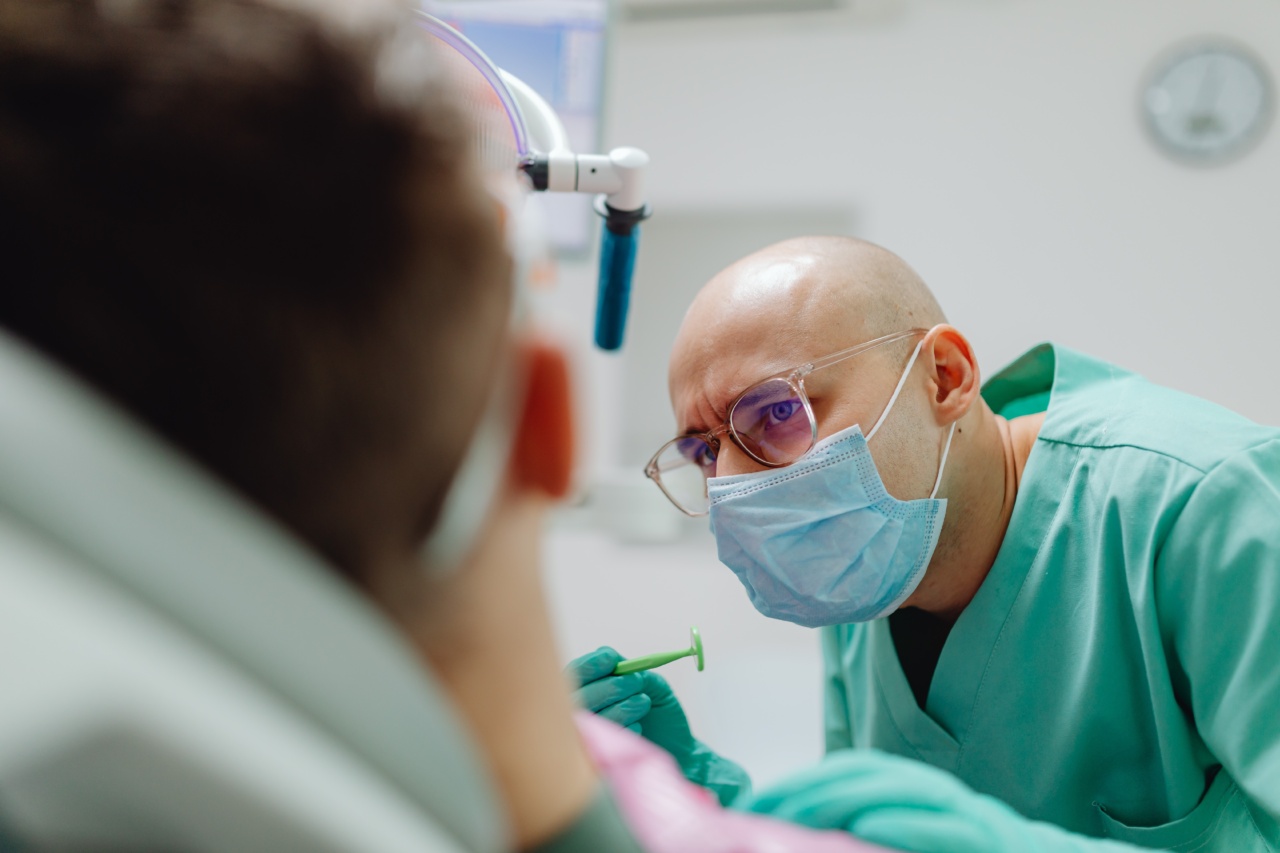An ovarian cyst is a sac filled with fluid that develops on a woman’s ovaries. In most cases, these cysts are harmless and disappear on their own without any treatment in a matter of weeks or months.
However, in some cases, the cysts can cause severe pain and discomfort, leading to the rupture of an ovarian cyst. The condition can be dangerous, and seeking immediate medical attention is crucial. In this article, we will discuss the diagnosis of a ruptured ovarian cyst.
Symptoms of a Ruptured Ovarian Cyst
When an ovarian cyst ruptures, it can lead to various symptoms that can be similar to other medical conditions. Some of the common signs of a ruptured ovarian cyst include:.
- Sudden and severe abdominal pain
- Painful intercourse
- Pain or discomfort during bowel movements
- Nausea and vomiting
- Fever and chills
- Heavy or irregular periods
- Bloating and abdominal swelling
If you experience any of these symptoms, it is essential to seek medical attention immediately. Ignore or delay seeking medical intervention can lead to further complications.
Diagnosis of a Ruptured Ovarian Cyst
To diagnose a ruptured ovarian cyst, your doctor will inquire about your symptoms and medical history. They may conduct a pelvic exam to determine the location and size of the cyst.
During the pelvic examination, your doctor will insert two fingers into your vagina while gently pressing on your abdomen to feel for any abnormalities in the pelvic region.
In most cases, the pelvic exam is not enough to confirm a diagnosis. So your doctor may order the following tests to diagnose a ruptured ovarian cyst:.
1. Ultrasound
An ultrasound is a non-invasive imaging test that uses sound waves to create an image of your ovaries and surrounding structures. This test can determine the size and location of the cyst and whether it is fluid-filled or solid.
It can also identify any bleeding or fluid accumulation in your abdomen due to the ruptured ovarian cyst.
2. Computerized Tomography (CT) Scan
A CT scan is another imaging test that uses a combination of X-rays and computers to create detailed cross-sectional images of your abdomen and pelvis. This test can provide the same information as an ultrasound, but in a more detailed manner.
It can identify any blood clots or other complications that may arise from a ruptured ovarian cyst.
3. Blood Tests
Your doctor may order blood tests to detect any infection or inflammation in your body due to the ruptured ovarian cyst. Blood tests can also determine if there is a hormonal imbalance that may be causing the cyst to grow abnormally.
4. Laparoscopy
A laparoscopy is a surgical procedure that involves inserting a thin, lighted tube with a camera into your abdomen to view your reproductive organs. This test is usually done when other diagnostic tests are inconclusive.
During the laparoscopy, your doctor may also remove the ruptured cyst or any other cysts that may be present in your ovaries.
Treatment for a Ruptured Ovarian Cyst
The treatment for a ruptured ovarian cyst depends on the severity of the condition. In most cases, pain medication and rest are enough to manage the symptoms.
However, if the symptoms persist or the cyst is large, your doctor may recommend the following treatment options:.
1. Surgery
If the cyst is large or there is a risk of complications, your doctor may recommend surgery to remove the cyst. Surgery may also be necessary if the cyst appears to be cancerous.
2. Hormone Therapy
If the ruptured cyst is due to hormonal imbalances, your doctor may recommend hormone therapy to regulate the levels of hormones in your body. Birth control pills can help prevent the formation of new cysts and may help shrink the existing ones.
3. Pain Management
Your doctor may prescribe pain medication to manage the symptoms of a ruptured ovarian cyst. Over-the-counter pain relievers such as ibuprofen or acetaminophen can also help alleviate the pain.
Conclusion
Diagnosing a ruptured ovarian cyst requires a combination of history taking, physical exams, and imaging tests. It is essential to seek medical attention immediately when you experience symptoms of a ruptured ovarian cyst.
If left untreated, a ruptured ovarian cyst can lead to serious complications. Seeking early treatment can help prevent complications such as blood clots, infection, or infertility.































